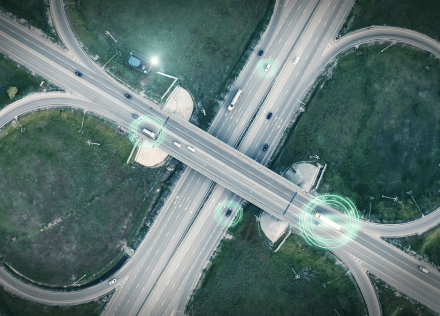How to Optimize the Dispatcher's Work in the Trucking Business

Transportation management in a car-hauling business is a complex process that requires precision, agility and strategic planning. The efficiency of the manager directly affects the performance of the entire company. Poorly planned routes, communication delays, and documentation errors can lead to significant losses and reduced profitability. To reduce the number of errors, fines, and unloaded flights, it is necessary to improve dispatchers' work and constantly introduce modern technologies. In this article, we will look at some valuable dispatching tips that will help optimize the dispatcher's work, increase the efficiency of processes, and make your business more successful.
Tip 1: Selection of the Correct Dispatchers
The selection of qualified dispatchers is the basis of successful transportation management in car hauling. Dispatchers are critical in coordinating drivers' work, planning routes and ensuring timely delivery of goods. Therefore, finding candidates with experience in this particular niche is essential. Here are some key aspects that you should pay attention to when selecting dispatchers:
The selection of qualified dispatchers is the basis of successful transportation management in car hauling. Dispatchers are critical in coordinating drivers' work, planning routes and ensuring timely delivery of goods. Therefore, finding candidates with experience in this particular niche is essential. Here are some key aspects that you should pay attention to when selecting dispatchers:
- Experience in car hauling: Candidates must know the rules for loading and unloading cars, the specifics of working with different types of transport and documentation requirements. Experience in other areas of logistics can be helpful, too, but knowing the nuances of car hauling is critical.
- Quick decision-making: Dispatchers should be able to respond quickly to changing road conditions and unpredictable situations. This includes rapid route changes in case of congestion, accidents, or other unforeseen circumstances. Making quick and informed decisions can significantly affect delivery efficiency and reduce delays.
- Good orientation on the road: The dispatcher must have knowledge of geography and the ability to use navigation systems. Applicants should have experience with maps, GPS, and other tools to assist in planning and adjusting routes.
- Exceptional communication abilities: Dispatchers constantly interact with drivers, customers, and other transportation process participants. The ability to communicate clearly and effectively, convey important information, and resolve conflicts is vital for successful work.
- Excellence of experience over learning: Although training new employees can be effective, this process can be lengthy and costly. Therefore, give preference to those with the necessary knowledge in car hauling. This will allow you to quickly integrate new employees into the workflow and ensure high productivity from the first days of work.
Tip 2: Using Modern Software
In today's world, technology plays a crucial role in improving business efficiency, including car hauling. Modern software such as the TMS system for dispatchers helps automate processes, minimize errors, and enhance communication between all transportation participants.
TMS automates tasks such as route planning, cargo distribution and order tracking, reducing time and inconsistencies. This avoids the human factor and minimizes the risk of delays and incorrect delivery.
The software improves communication between dispatchers, drivers, and customers through a single platform, providing real-time information exchange. TMS also helps determine the most effective routes, taking into account traffic, weather conditions, and weight restrictions.
Modern TMS dispatch software stores and analyzes transportation data, helping to identify weaknesses and improve processes. It easily adapts to changes in business and allows you to scale operations as the company grows.
Tip 3: Route Planning
Route optimization is a crucial aspect of the manager's work. Use specialized programs that help you find the best routes to avoid traffic jams and reduce travel time and fuel costs. These programs consider current road conditions, weather conditions and restrictions on the weight and dimensions of vehicles. Planning will avoid "deadhead trucking" – trips without cargo, which reduces the business's profitability. The more accurately the route is made, the less time and resources will be spent on unnecessary movements. Thus, you will increase the overall efficiency of your business.
Tip 4: Constant Communication with Drivers
Establish clear communication with drivers. Use mobile apps and radios to share information quickly. Update them regularly about changes to the route, delays, or other important details. This will help avoid misunderstandings and reduce the risk of errors. Constant communication will allow dispatchers to respond quickly to unforeseen circumstances and provide the necessary support to drivers on time. Therefore, drivers will feel more confident knowing they can count on an ambulance and accurate information.
Tip 5: Real-Time Cargo Tracking
Invest in real-time tracking systems. This will give dispatchers a complete picture of the location of goods, the delivery status, and possible delays. This transparency helps to increase customer confidence and management efficiency. Indeed, as you will be able to promptly inform customers about the status of their cargo, this will significantly improve the level of service. In addition, tracking cargo in real-time will help avoid losses and thefts, an essential aspect of transportation security.
Here are some additional benefits of real-time cargo tracking:
- Transparency: Customers receive accurate information about the status of their cargo.
- Efficiency: Dispatchers can respond quickly to delays and change routes.
- Security: Tracking helps avoid losses and theft.
- Customer satisfaction: Operational information increases customer confidence and satisfaction.
By investing in modern tracking systems, you ensure your business's stable operation and increase the service level.
Tip 6: Data Analysis and Reporting
Regular data analysis will help identify weaknesses in dispatchers' work and find ways to improve. Keep reports on all trips, taking into account travel time, fuel costs, delays, and other factors. Use this data to optimize processes and improve performance. By analyzing the information, you will be able to determine which routes are most effective, where problems arise, and how they can be solved. This will allow you to improve operational processes and provide high-quality service constantly.
Tip 7: Training and Professional Development of Dispatchers
Constant training of dispatchers is necessary for their professional development. Conduct regular training sessions, seminars, and refresher courses. This will help them stay abreast of the latest car-hauling trends and technologies, ensuring they are well equipped to handle new tools and methods. They will be able to better cope with emerging challenges and apply best practices in their work, leading to more efficient operations. Investing in employees’ training will provide long-term benefits for your business, increasing its competitiveness and enabling it to adapt swiftly to industry changes. A well-trained team is more capable, confident, and ready to meet the demands of a dynamic market.
Tip 8: Use Haulk
Use the Haulk app to achieve the maximum level of efficiency of the manager. It provides all the necessary tools for route planning, cargo tracking, and communication with drivers. Haulk will help reduce errors, penalties, and "deadhead trucking." Provide your dispatchers with the best conditions for working with Haulk. Our application will become an indispensable assistant in their daily operations, increasing the efficiency and accuracy of transportation management.








